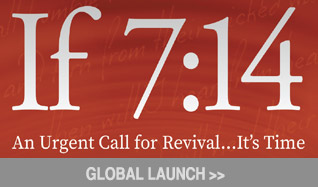by Greg Baker
The following commentary was first published by the Des Moines Register.
In just a few short weeks, the coronavirus crisis has become all-consuming. It dominates our news, schedules, pocketbooks, who we are around, our health, and so much more.
There are not many seasons in life that so dominate our attention, but there is another message that takes center stage this week: Easter. The message of Easter also radically changes lives. It is an all-consuming message that changes the way we view our schedule, our pocketbooks, our relationships, and so much more.
Yet someday coronavirus will pass into the vast records on human history. Easter, however, transcends all of human history. It is more than an event. Easter is a mindset, a reality, a truth that set the course of human history from the beginning of time and will endure for eternity.
Easter comes from an old Latin word meaning “dawn,” symbolizing the start to a new day, the sun rising, life and light. It symbolizes the reminder that God’s mercies are in fact new every morning. It is making all things new, the beginning of the restoration of how things were meant to be.
We all know this world is not how it was meant to be. It is full of diseases, viruses, plagues, famines, poverty, sickness, crime, gossip, slander, pride and death. This was not a part of God’s original design. Mankind’s rebellion brought us here, a rebellion that began long ago when our ancestors listened to the devil, rather than our loving Father. It has been continued by each of us, as we chase our own desires, rather than obey the God who created the heavens and earth and holds our best interests at heart. Sin has ruined our world, God’s beautiful creation.
Yet it was in the beginning of this rebellion and despair that Easter first shone. God made a promise to our ancestors as soon as sin entered the world.
He promised humanity would bear a Son, and though struck by the devil, this Son of Man would have the victory: “I will put enmity between you and the woman, and between your offspring and hers; he will crush your head, and you will strike his heel” (Genesis 3:15).
God had a plan for salvation, and that plan would be told in more than 400 different Old Testament prophesies. From generation to generation mankind would put their hope in this Easter promise.
The promise of Easter began to shine bright, when 2,000 years ago, a member of the Godhead, Jesus Christ, entered this world as a man. He was clothed in humility from day one. He was born not into a wealthy family, but rather to impoverished teenage parents. He grew up in the often ill-regarded, “backwood” region of Galilee. His followers were uneducated fisherman, tax collectors, the poor, the disabled, children and women. During His triumphal entry, Jesus the King entered His capital city, not on a valiant steed, but on a donkey. His subjects then mocked Him, beat Him, and killed Him on a cross.
Jesus was not the Messiah the world expected, but He was the Messiah the world desperately needed. Jesus did not come to change a moment in history, rather He came to change the course of history. He accomplished this by defeating our biggest enemies: sin and death. He did what none of us is capable of doing: Born of a virgin, born without sin, He lived His life in the way of righteousness and earned an eternal reward. But instead of claiming His reward, He chose substitution.
Easter begins with substitution. Each of us has amassed an unpayable debt with God for the many wrongs we have done. Scripture says that no man is righteous before God (Romans 3:10). The consequence of our sin is death – not only physical but spiritual – which results in an eternal separation from God in hell. But God did not want this for His creation, so Jesus chose substitution. On the cross, Jesus took our place. He paid for the price of sin, so that we would not have to pay it. He took on the punishment we deserved.
“He Himself is the propitiation for our sins, and not only for ours, but also for those of the whole world” (1 John 2:2).
But this is not all of Easter. On the third day, Christ rose from the dead. He was resurrected. Death has been beaten.
“Death, where is your victory? Death, where is your sting? Now the sting of death is sin, and the power of sin is the law. But thanks be to God, who gives us the victory through our Lord Jesus Christ!” (1 Corinthians 15:55-57).
This is Easter. God sent His Son, Jesus Christ, to defeat mankind’s biggest enemies: sin and death. This message was foretold for millennia before Christ came, told for millennia after He came, and will be told until He returns.
On Easter Sunday, do not look to your current temporary circumstance. Do not look to this current season. It will pass. Rather, look to Christ and the hope of Easter. It is the hope for not only today, but also for yesterday and tomorrow. It was spoken long before us, and will be spoken long after us. Let this dawn shine in every season.
Greg Baker is vice president of church engagement for The FAMiLY Leader.



